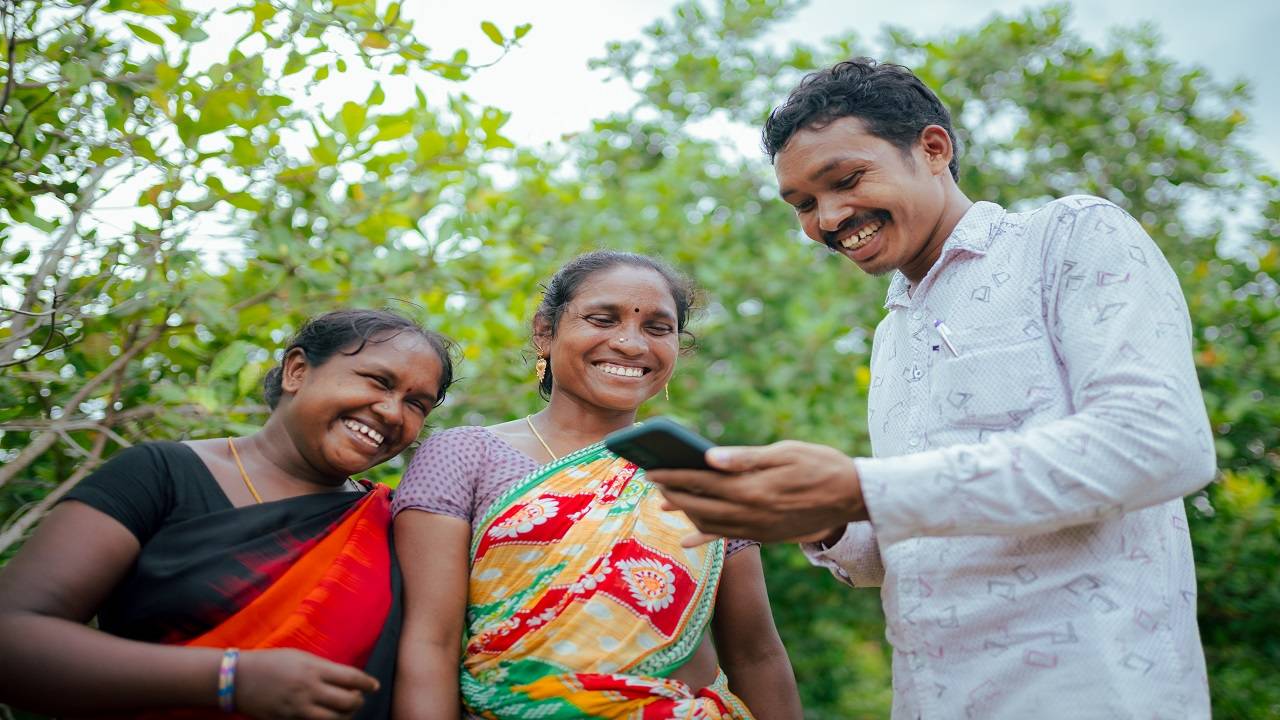
The Indian agricultural sector has exhibited remarkable progress in its journey towards becoming a food-surplus sector and subsequently, a net exporter of valuable agricultural resources. It has and continues to weather many pressing challenges including unpredictable climate shocks, infrastructural challenges, soil health and lack of access to scientific & verified information. The sector also provides employment to a significant part of the women population by engaging as much as 75% of the community in crop production processes. A bulk of the activity undertaken by this demographic including sorting, packaging and grading run the risk of being replaced by technology or severely impacted by climate change. Experts also maintain that climate events, if unmitigated, could create losses amounting to almost 35% of the national GDP.
It is imperative that any tool or strategy designed to accelerate agricultural productivity should intentionally contain provisions for gender inclusivity and climate resilience. As Farmer Producer Organizations (FPOs) are critical catalysts in their deployment, working closely with them is the need of the hour. FPOs play a strategic role as intermediaries between farmers and multiple stakeholders like the private sector and the government. They have proven to be particularly beneficial to farmers in terms of access to business opportunities and greater market linkages. They are also given greater visibility into output prices, big buyer availability and credit facilities. Recognizing their ability to create a more gender inclusive and climate resilient agriculture sector is the first step towards increasing the remunerative potential of the farming community, facilitating seamless communication among multiple stakeholders and improving agricultural outcomes.
Streamlining Farmer to FPO Engagement
Farmers are custodians of a critical component in the agricultural value chain - data. Gathering farmer-led insights with regard to onground requirements helps FPOs with the sourcing of quality inputs and the fostering of appropriate market linkages. Agtech solutions like Digital Green’s farmer collective app provide farmers with a customisable interface to share their requirements. This incentivises FPOs to strategize appropriate interventions and coordinate better with supply-side stakeholders. It also enables them to gain a better understanding of the type of crops grown by farmers, individual farming practices as well as the problems faced by farmers.
Working closely with the all-women Megha Mandali FPO in Surat through digital skilling and onboarding onto the farmer collective app has helped them collect agri-data more efficiently and exercise a greater degree of bargaining power in the input procurement process. The team has recently completed a demand collection from 3000+ farmers and were able to get a margin of 30 per cent from input dealers owing to the availability of data. Data and digital literacy has enabled the BoD members of the Megha Mandali FPO to understand the value of the demand and supply principles, and market trends ahead of cropping season. This proves that the hypothesis of the conceived power of farmer collectives has been increasingly realised through the data & digital literacy of women farmers.
Providing Support Towards Creating Sustainable Business Plans
Research by the ICAR- National Academy of Agricultural Research Management (NAARM) reveals that FPOs are committed towards enterprise creation in the sector at large but are often limited by the availability of resources for financing. Gaining access to private funding is particularly challenging owing to the small capital base that many of them possess. Women-led FPOs also face social restrictions that impede their access to quality capital. Agtech has immense potential to enable FPOs to create sustainable and viable business plans that focus on capacity building across multiple stages of cropping seasons, building stronger financial foundations for the enterprises under their ambit and creating more opportunities for business.
The Saharpada FPO in Odisha was able to realise their vision for a soilless sapling business in collaboration with 800+ farmers across 38 villages. Through data-backed decision-making, the FPO has seen a substantial increase in revenue on the sale of soilless saplings as well as a 30% reduction in the cost of the seeds. 2.6 lakh saplings were distributed to approximately 1000 women farmer members within the FPO in one cropping season alone.
Integrating Data Collection and Insight Generation Capabilities into the Ecosystem
The World Economic Forumestimates that the collection of critical agricultural data across many verticals can unlock an economic value of up to US$ 65 bn in India. While the use of smartphones has provided greater impetus for the collection of data, there are many silos that need to be broken. It is important to create an agile data collection ecosystem wherein multiple stakeholders can seamlessly gain insights and design the appropriate interventions. Open-source data sharing platforms like FarmStack, developed as a digital public good by Digital Green, allow for the secure sharing of data among stakeholders within the perimeters of data protection. The farmer collective app also allows FPOs to access the inputs shared by farmers and subsequently enable them to share relevant information to the supply-side of the ecosystem.
Prioritising Knowledge Sharing and Identifying Metrics for Measurement
The success of an agtech solution can be measured by its seamless integration into the daily habits of its users. Creating an environment conducive to digital skilling and peer-learning within the farmer and FPO communities is the first step towards making this a reality. The farmer collective app is equipped with the ‘Enhanced Community Video Advisory Services’ function which helps create and disseminate locally relevant content and training material. It utilises multiple communication channels like WhatsApp, Interactive Voice Response (IVR) and AI Chatbots to reach out to individuals across the internet accessibility spectrum. This helps boost farmer confidence, triggered by easy access to verified information, and equips them with the latest resources in farming. It also gives FPOs incentive to translate business vision into execution as well as impact assessment for proposed pilots.
Facilitating large-scale aggregation can be made possible through the creation of a centralised and diversified data pool that encompasses all verticals of the ecosystem’s operation. Empowering FPOs to collect gender disaggregated data can strengthen the resilience of the sector in the long run. Providing them with the appropriate resources to collect relevant data, organise it, disseminate it among the relevant stakeholders to maximise returns is the need of the hour.









